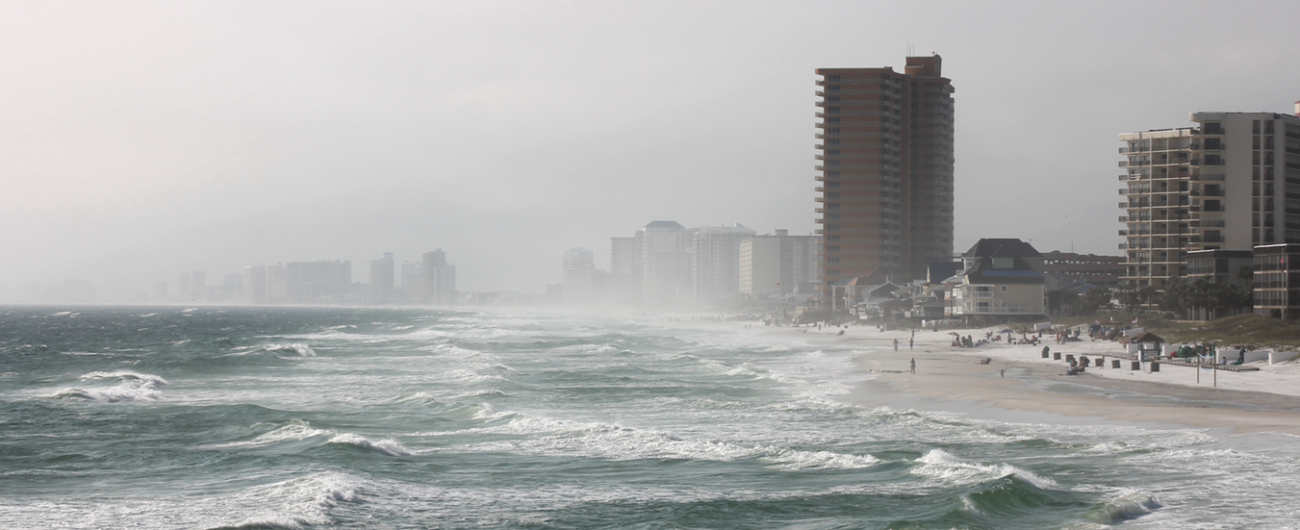When you’re planning travel, weather is probably one of the biggest things on your mind. The forecast has a big impact on travel plans, from where you choose to go and when to what you pack for the experience. It also has an impact in terms of travel insurance coverage. If you’re planning a trip to an area where hurricanes are even a small possibility, you probably want to know the answer to the following question: Will my travel insurance cover me in the case of a hurricane?
There are a number of factors to consider in answering this question, so let’s break it down.
First and foremost, you have to determine whether or not you’re traveling to a region that has or could ever experience a hurricane and when hurricane season falls in that region. Here’s what you need to know:
- Hurricanes can only form over warm bodies of water near the equator (this is why they’re so common near in areas like the Caribbean).
- Hurricane season extends from May through November, but varies from region to region as follows:
| Region | Start of Season | End of Season |
| North Atlantic | June | November |
| Northwest Pacific | July | November |
| Northeast Pacific | May | November |
| Southwest Pacific | October | May |
| South Indian | October | May |
| North Indian | April | December |
If your destination is in a hurricane-prone region during hurricane season, it’s time to take a look at your travel insurance options for this trip. For those with travel arrangements and insurance already in place, be sure to take a look at your existing coverage for this trip to ensure that the following elements are part of your coverage. If you have yet to buy travel insurance for this trip, the following is what you’ll want to look for in selecting your travel insurance plan:
Trip Cancellation
When you’re investing in a vacation, it’s always a good idea to include trip cancellation coverage in your policy. This kind of insurance acts as something of a travel guard for a variety of circumstances under which you might need to cancel a trip and want to recoup any of the expenses for which you’ve already paid. Trip cancellation coverage is even more important when you’re traveling to a region where there’s a chance of a hurricane, since it’s not very likely that you’ll want to go ahead with your travel plans if the threat of a hurricane arises. Not only will this type of coverage allows you to cancel your trip if a storm or severe weather hits, it will also allow you to cancel your trip after the hurricane has passed in the event that your destination is deemed “uninhabitable”. Without this insurance, you could be out a lot of money, especially if you’ve booked a non-refundable trip.
The most important thing here is timing. In order for trip cancellation to be covered in the event of a potential hurricane, you’ll need to purchase that element of your coverage before the storm is named by the State Department. Once a hurricane is named, it goes from being an unforeseen storm to a “foreseeable” event and may no longer be covered by travel insurance. So if you’re headed to a hurricane-prone area, don’t wait until you hear that a hurricane or other storm has been named before you add this type of insurance to your policy. Protect yourself and your money from the get go.
Trip Interruption
If a hurricane arises while you’re on your trip, you’ll also want to be able to go home early without losing a bunch of money. With trip interruption insurance, you’ll be able to book new transportation home from your destination and your policy will reimburse you for most of the prepaid trip costs for services and accommodations that you’ll no longer use if you depart early for a covered reason. Trip interruption coverage often goes hand in hand with Trip Cancellation coverage, but not always, so be sure to double check your policy.
Travel Delay
Travel delay coverage will cover you if you’re attempting to leave an area and severe weather, such as a hurricane or other type of storm, stops you from making it to your flight on time or delays you so you miss another leg of the journey. Most airlines are not required to cover you in terms of food and accommodations if a delay is due to weather, so you could end up spending a lot of money on hotel accommodations and additional meals by staying longer than you want to if you don’t have this type of insurance in your policy.
Emergency Medical Expenses
Most travel insurance policies come with emergency medical expense coverage that would extend to any injuries or illnesses sustained during hurricane travel. That said, you always want to check that your specific policy includes a level of coverage that makes you feel comfortable. Take some time to review your policy to ensure that you’re good to go if you get caught in a storm and end up needing care at a hospital or clinic outside of your home country.
Non-Medical Emergency Evacuation
On the off chance that you end up in a dangerous situation and need to be evacuated from your destination, you’ll want to make sure that your insurance company and policy cover non-medical evacuation services will allow you to get out of harm’s way as quickly as possible. This is different from trip cancellation insurance, which will allow you to go home before the storm hits if you’re feeling unsafe.
The good news is, you’re unlikely to be caught in a hurricane without notice, as the technology that tracks major storms is so advanced, hurricanes are almost always predicted in advance of their arrival.
Just make sure you’re covered for the above elements, take some time to compare plans to determine which one is right for you and your fellow travelers, and get yourself the right coverage with the right insurance company as soon as possible.


